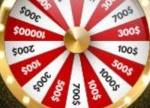The Truth About Sports Tipsters – Do They Offer Value For Money?
Posted: February 27, 2024
Updated: February 27, 2024
If you're looking for the truth about sports tipsters, then remember that luck plays a significant role in short-term outcomes, often influencing results unpredictably. However, over the long term, skillful analysis, informed decision-making, and strategic betting strategies can be more reliable indicators of success.

Some people have suggested that many articles have been too hard on legit tipsters by setting the bar too high when it comes to proving skill over luck. Moreover, by employing a “frequentist” approach to test the significance of a betting record, we haven’t truly been assessing the presence of skill. Rather, we’ve been gauging the likelihood that betting outcomes come about by chance, thereby assuming there’s no skill involved.
Following this methodology may require numerous tips—possibly hundreds or even thousands—before you can really eliminate chance as the only explanation for a series of profits. Alternatively, there’s another approach to prove the truth about sports tipsters and see whether a tipster or bettor possesses greater skill. That’s simply looking to see whether they are outperforming the market.
Investing And Sports Betting Similarities
Those folks who are involved in the financial sector are more acquainted with the concept of “beating the market.” Typically, it means that an investor achieves a better return than the market average. However, this definition doesn’t really go deep enough. Investors frequently outperform the market, but the crucial question is whether this success stems from luck or skill. One method to analyze this distinction is to see how accurately the investor can predict future market movements. A similar strategy can be applied to sports betting markets.
If a punter consistently backs prices that subsequently decrease more often than rise after their wagers, it suggests that, on average, they possess insights about events not yet factored into the market when they place their bets. Thus, a sports bettor who causes a betting price to drop can be considered as having superior knowledge compared to the market. By betting, they essentially bring their superior information or knowledge to the market, prompting price changes until, assuming the efficient market ideas are true, it becomes exploitable for profit.
The Truth About Sports Tipsters – Outperforming The Market
The information conveyed through the opinions of bettors can be seen in their wagers. It could be said that this enhances the accuracy or efficiency of a market in gauging the true probabilities of sporting outcomes. Notably, the peak of opinion expressed in a betting market typically occurs at its closure, i.e., at the start of the event.

Hence, we can put forward a hypothesis: if a bettor or tipster consistently outperforms the closing price with the odds they back, does it suggest they possess superior information compared to the market? After all, this would indicate a real skill at prediction. In some ways this practice mirrors how astute bookmakers identify their customers, leveraging sharp bettors to refine their lines for greater efficiency. In truth, this is also how we reckon other sportsbooks like Bet365 Sportsbook identify, restrict, or bar these sharp bettors.
The Profit And Loss Accounts
When delving into the truth about sports tipsters, we conducted an analysis on a sample of 48 tennis tipsters, for whom we had obtained closing prices for their match bets, to see if any of them had managed to beat the closing market. All in all, they advised on a total of 7,170 bets (excluding voids due to retirements and dodgy data). Wagering on these tips at level stakes according to the advised prices resulted in a profit over turnover (yield) of -0.94%, with average odds of 2.466. In comparison, backing these tips at closing market prices yielded a -2.66% return, with an average odds of 2.436. So 59.1% of suggested prices outperformed the closing market.
Out of the 48 tipsters, 38 (or 79%) managed to beat the closing market on more than 50% of occasions (50% being the level expected by chance alone). These findings suggest a group of tipsters who were contributing valuable information to the market. Their distribution of actual price to closing price ratios differs from what would be expected if players were merely guessing. It exhibits a greater kurtosis (values clustered more tightly around the mean) and a higher proportion of ratios exceeding 1.00 (indicating advised prices were higher than closing ones). The contrast between the two distributions is highly statistically significant.
The Truth About Sports Tipsters – The Results
However, and here’s the rub, despite contributing this information to the market, it wasn’t enough to see an overall aggregate profit. This is evident from the marginal difference between the average tipped betting price and the average closing price.

In reality, this was just 0.03. You might speculate whether this occurred because the tipsters failed to get the optimal prices. Instead, let’s assess whether these tipsters succeeded in outperforming fair prices. We can take a guess at these by eliminating the bookmaker’s margin or vigorish from the closing prices.
This reveals an average fair price of 2.548. In essence, despite surpassing the closing prices, the information these tipsters brought to the market wasn’t of sufficient quality to outshine the fair prices (based on the closing market). Indeed, when we consider the variance between each tipped price and its fair price equivalent, the expected yield from these 7,170 tips was -0.90%,. This is nearly identical to the actual yield. According to online gambling news in the US, only 44.7% of suggested tips outperformed the fair price.
Actually, only 14 out of the 48 tipsters (29%) achieved over 50% success in this regard. However, not one of them achieved a positive profit expectation that was statistically significant in any manner. It’s a hard truth about sports tipsters that only 2 tipsters with more than 100 advised tips managed to attain a yield expectation greater than +1%, the highest being 2.99%. In many ways results like these lead punters to question whether sports tipsters are genuine, or just have an eye on making bank from lazy bettors.
Luck vs Skill In Sports Betting
On the one hand, it could be said that this analysis highlights the potential for sports betting tipsters to outperform the market by leveraging superior information for exploitation. However, when it comes to recognizing the truth about sports tipsters, this tipster information isn’t strong enough to overcome the market costs imposed by bookmakers through their vigorish. Together, they fail to secure the betting prices of those implied by the fair probabilities of outcomes.
While some tipsters do outperform the fair market, it’s difficult to argue that any do so based on anything other than luck. This doesn’t dismiss the possibility that some tipsters or bettors can indeed surpass luck. However, it provides further evidence that such occurrences are rare. It’s worth noting that these tipsters claim expertise in analyzing games and reading player form. At this point, you might wonder what results we’d uncover if we analyzed a group of regular punters. Or, judging from the tipster results, a group of monkeys.
Conclusion – The Truth About Sports Tipsters
Here at Gamingzion.com we encourage you to evaluate your performance against closing markets and their implied fair market equivalents. Arguably, this offers another valuable method to gauge whether you have the skills to generate long-term profits from sports betting at some of the top online sportsbooks in the US like Bet365 Sportsbook. At the very least, it may provide you with some reassurance during losing streaks that losses are down to bad luck. Conversely, it may also show you whether your winning streaks are merely the result of luck.
Click here to try the best odds at bet365 Sportsbook












